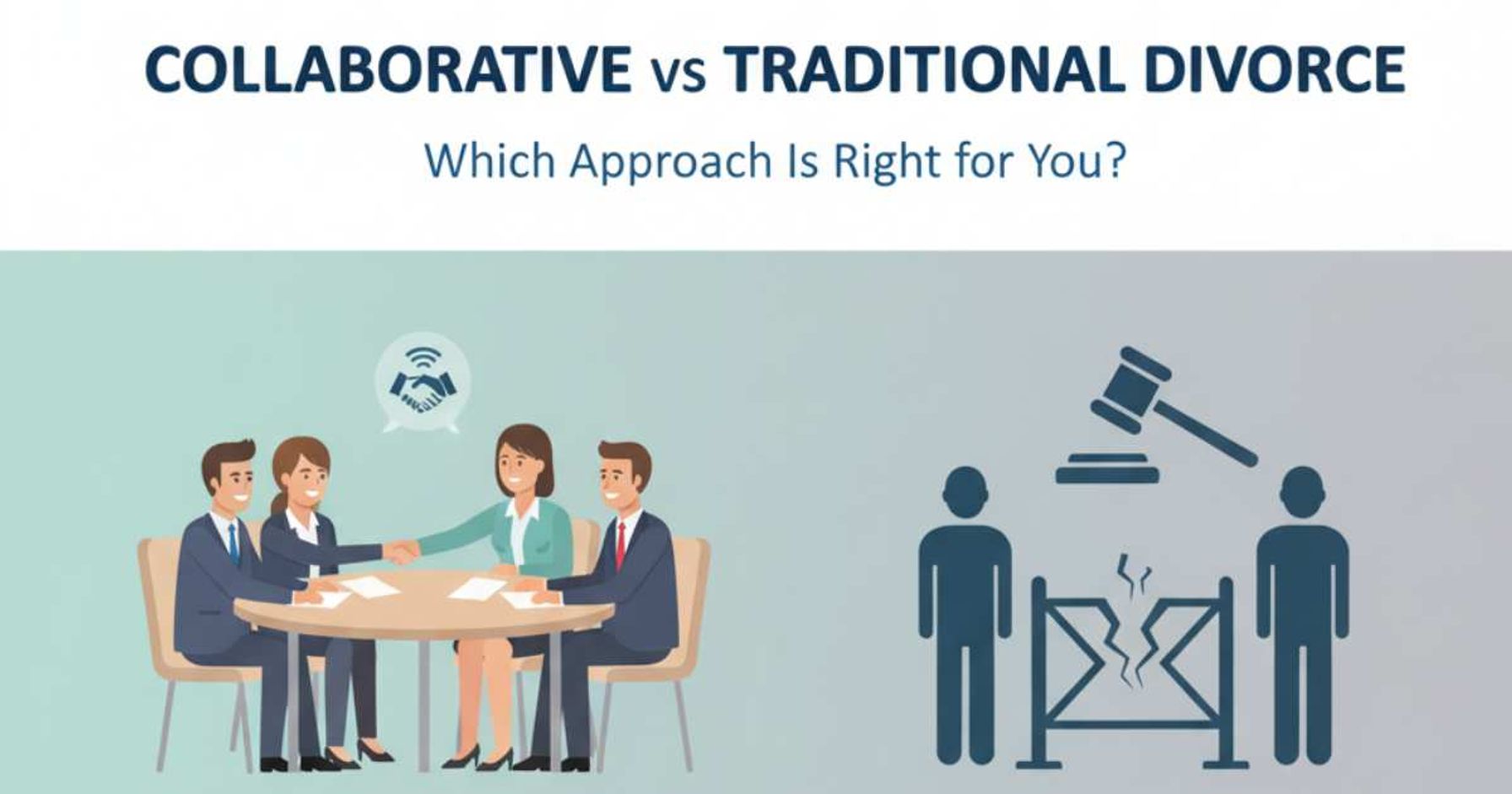When a marriage reaches a point where separation seems the only way forward, the next big question is how to go through the divorce process. In India, many people are becoming aware that divorce doesn’t always have to be a long, stressful courtroom battle. While the traditional legal route is still common, some couples now explore a more peaceful option, which is collaborative divorce.
Both approaches have their own paths, benefits, and challenges. Understanding their differences can help you make a decision that feels right for your situation.
What Is a Traditional Divorce?
A traditional divorce generally follows the standard court process. Each partner hires their own lawyer, and the case is presented before a judge. This process often involves filing petitions, hearings, and legal documentation.
Traditional divorce can feel formal and sometimes lengthy because it’s dependent on the court’s schedule and procedures. It may be preferred when major disagreements exist, such as over property, finances, or custody, and when one or both partners feel that negotiation isn’t possible.
What Is a Collaborative Divorce?
A collaborative divorce takes a more cooperative approach. Instead of opposing each other in court, both partners agree to work together, often with their lawyers, financial advisors, or mediators, to reach mutual decisions.
The aim is to resolve disputes respectfully, maintain privacy, and reduce emotional strain. This method is often chosen by couples who are willing to communicate and find fair ground without extensive litigation.
Collaborative vs Traditional Divorce: Key Differences
While both lead to the same outcome, legal separation, the process and experience are quite different:
- Traditional divorce follows a legal, court-based structure.
- Collaborative divorce is discussion-based and focuses on mutual agreement.
- Traditional divorces may feel formal or tense.
- Collaborative divorces usually involve open discussions in a neutral setting.
- In traditional divorce, the final decision often rests with the court.
- In collaborative divorce, both parties shape the agreement together.
- Court cases are part of the public record.
- Collaborative sessions usually remain private.
Which Approach Could Be Right for You?
There’s no single right answer. The choice depends on personal comfort, communication level between partners, and how complicated the situation is.
A traditional divorce might be appropriate when disagreements are strong, or one side feels negotiation isn’t possible.
A collaborative divorce could work better if both partners are open to dialogue, prefer privacy, and want to minimize conflict.
Whichever path you consider, the key is to stay calm, informed, and patient throughout the process. Professional guidance can help you understand your options clearly and protect your interests without unnecessary stress.
Final Thoughts
Choosing between a collaborative or traditional divorce isn’t just a legal decision, it’s an emotional and practical one. Each path has its own journey, but both can lead to closure and a new beginning.
What matters most is finding a process that aligns with your comfort, values, and future goals.




